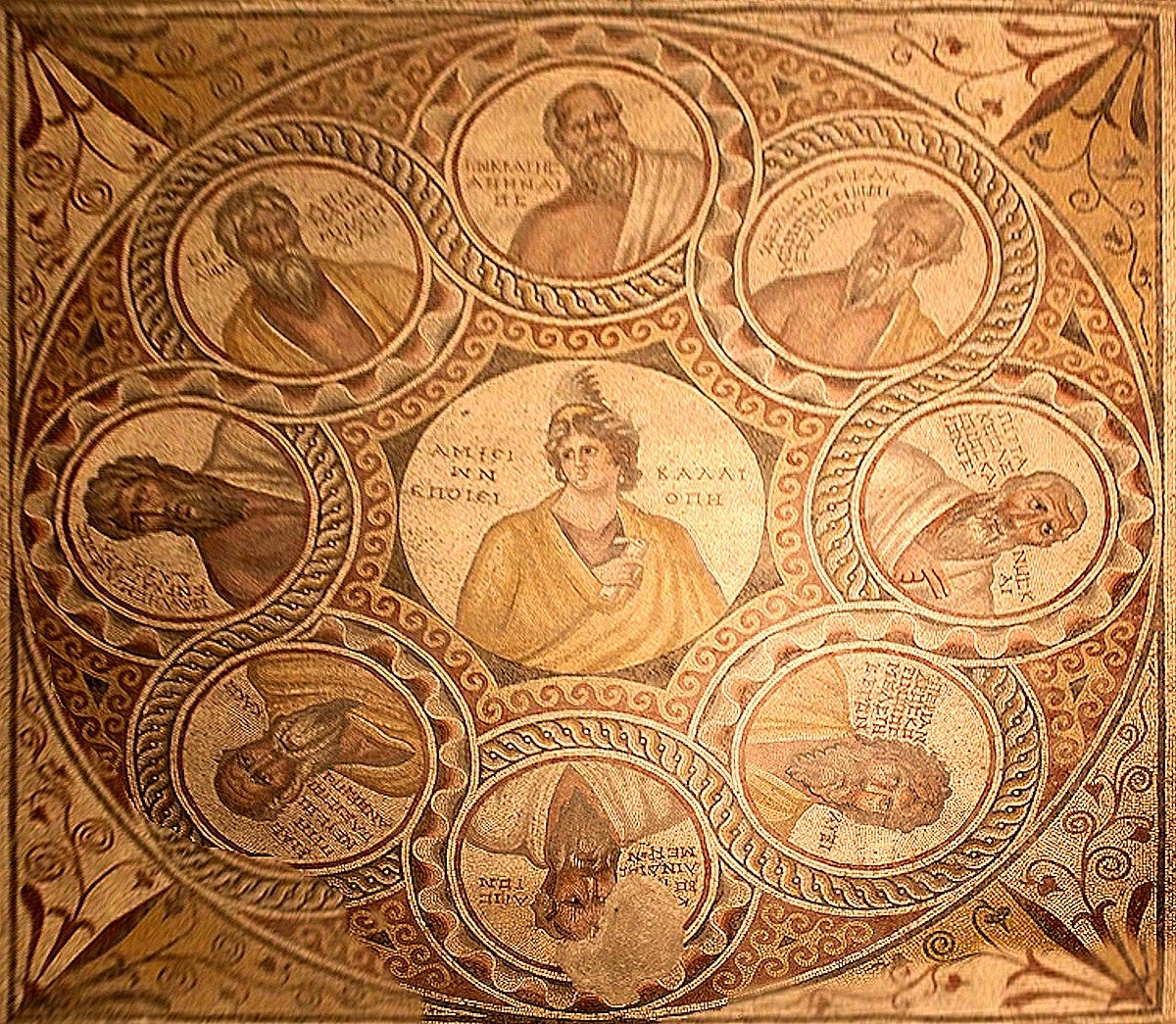
Featured in New Lyre Magazine - Fall 2024
To truly appreciate the nature of the Lycurgian plan, we must understand Sparta’s political situation at the time, and the conditions under which Lycurgus found Lacedaemon when he unveiled his new plan. Two kings held the same authority and simultaneously served as the heads of state; each was jealous of the other, and each was concerned with building his own following, to thus limit the authority of his rival. Their jealously had been inherited from the two previous kings, Prokles and Eurysthes, and their lineages down to Lycurgus, such that Sparta was constantly plagued by factional struggles. Each king sought to bestow more freedoms on the people to win their favor, and these gifts inspired insolence within the population, leading to insurrection. The state was rocked by chaos and vacillated between monarchy and democracy. Boundaries between the rights of people and the authority of kings had not yet been properly defined, and wealth remained in the hands of a few families. The rich tyrannized the poor, and the latter’s misery resulted in revolt.
Plagued by internal discord, the weakened state predictably fell victim to hostile neighbors, or dissolved into various smaller tyrannies. And this is how Lycurgus found Sparta: no clear distinction between the authority of kings and the people, an unequal distribution of goods and wealth, a lack of public harmony and spirit of cooperation, and complete political bankruptcy—all these were symptoms confronting the legislator, which he had to take into consideration when framing his new laws.
When the day arrived and Lycurgus planned to announce his new legislation, he had thirty of the most prominent citizens, whom he had recruited to his plan, appear in the marketplace with arms, to frighten anyone who might wish to resist. King Charilaus, fearful of these measures, sought refuge in the Temple of Minerva, since he believed Lycurgus’ plan was aimed against him. But he was prevailed upon, and finally became an active supporter of Lycurgus’ program.
The first decrees pertained to the government itself. To prevent the republic from ever being beset by similar strife between monarchical tyranny and democratic anarchy, Lycurgus created a third power between the two; he established a senate. The senators were 28 in number, or 30 together with the two kings, but should side with the people if the kings abused their power, and if, on the other hand, the power of the populace became unmoored, the senate would come to the defense of the kings. It was an excellent arrangement, whereby Sparta could avoid the previously known domestic chaos in all future ages. For, it became impossible for either party to take advantage of the other: the kings lacked the power to oppose the people and the senate, and it was impossible for the people to lash out if the senate came to the defense of the kings.
However, there was a third case which Lycurgus failed to consider: the senate abusing its own power. For, the senate could take whichever side it pleased, whether with the people or the kings, without creating a threat to the public order, but there was no way for the kings to join the people against the senate, without creating a danger to the state. So, the senate quickly began exploiting its newly established power, given the small number of people made it easy to conspire and reach agreement. As a result, Lycurgus’ successor filled this legal void by introducing the ephors, who were to keep the senate’s power in check.
But even more dangerous and daring was Lycurgus’ second innovation: to eliminate the distinction between the rich and the poor, he distributed the republic’s land in equal parts among all citizens. Laconia was divided into 30,000 fields, with the area around Sparta itself being divided into 9,000 fields, each large enough for a single family to sustain itself. Sparta became beautiful to behold, delighting Lycurgus by its sight as he travelled the country. “All of Laconia,” he declared, “is one great farm divided among brothers.”
Lycurgus would have also happily distributed the other earthly goods of the nation, just like the farmland, but insurmountable obstacles stood in his way. Therefore, he sought to attain his goal by other means, and what he couldn’t resolve by decree, he took into his own hands.
He started by outlawing all gold and silver coins. He introduced iron ones instead. Further, he gave the large and heavy iron coins a small value, which meant one needed a large place to store even a modest sum, and many horses to transport them. Lo and behold, he went even further: to dissuade anyone from placing too much value on the novel currency, and to prevent hording, on account of the iron in it, he had the smelted iron from which the coins were made tempered in vinegar, making them useless for other purposes.
Who could now wish or afford to steal, or let himself be corrupted, or even hoard wealth, given any ill-gotten gains could be neither hidden nor used for anything else?
But Lycurgus didn’t stop there. Beyond depriving citizens of the means of luxury—he removed those things which might inspire the desire for them in the first place. Sparta’s coins were useless to foreigners, and Spartans had no others to offer. Artists employed for luxury disappeared from Laconia; foreign ships no longer ventured to its ports; no wanderer sought his fortune there; merchants saw no reward in trying to exploit the population’s worldly desires, for it had nothing to offer other than giant iron coins, which were despised by all other countries. Luxury itself became extinct, for its means were eliminated.
Keep reading with a 7-day free trial
Subscribe to The Chained Muse to keep reading this post and get 7 days of free access to the full post archives.



